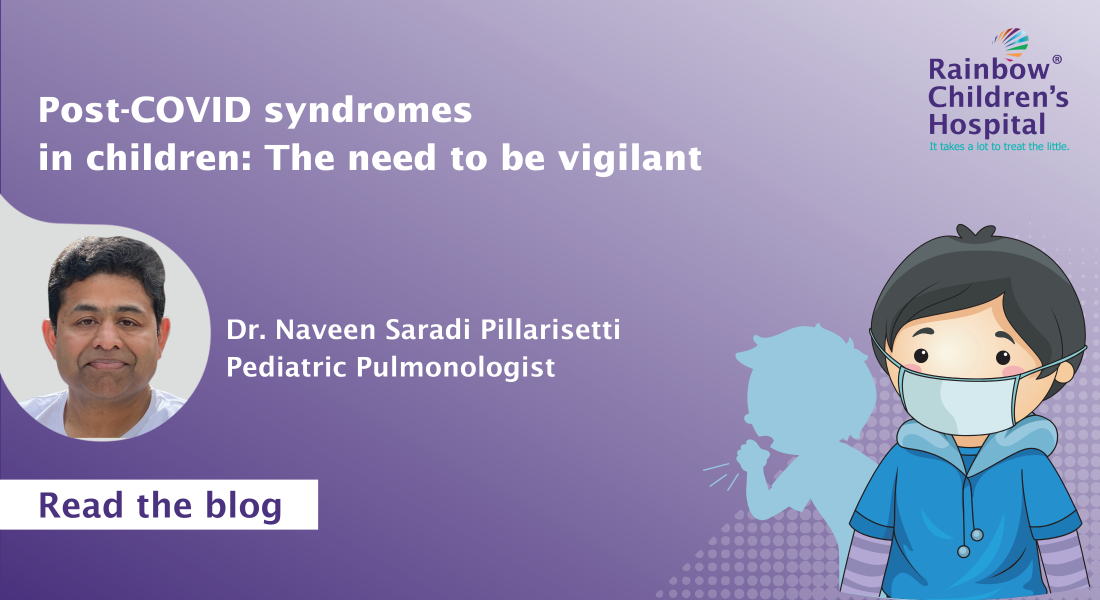Categories
Post-COVID syndromes in children — The need to be vigilant
Oct 18, 2022
Nearing the end of the current wave of the pandemic largely dominated by Omicron variant. Schools have reopened in most states with offline learning being made compulsory. Offices and usual socio-economic activity is fast resuming.
While most current COVID cases appear to mostly mild, there is a concern that symptoms could persist in children well after the inital recovery. Some of these symptoms fall under the titles "post COVID" or "long COVID syndromes". The exact incidence of these is not very clear at this stage but it pays to be alert to the possibility of such syndromes and to ensure children are investigated and treated accordingly.
Some of these symptoms include persistent respiratory symptoms, such as ongoing cough, wheeze, shortness of breath and reduced exercise tolerance. There appears to be an increase incidence of prolonged upper respiratory symptoms such as nasal congestion and sinusitis. Prolonged fatigue, reduced exercise tolerance and myalgia have been reported. There have been reported issues such as headaches, sleep disurbances, lack of concentration and inabilty to focus on school work. Anxiety and mood disorders have been well described during the pandemic. Rare syndromes as multi-system inflammatory conditions are reported and usually rare need to be assessed by specialized teams.
Persistent respiratory symptoms should be assessed clinically and supported by tests where appropriate tests including radiology and lung function assessments to prevent long term complications. A combination of medical input, physiotherapy, adequate nutrition, psychological and emotional support could be offered.
While the long-term effects of COVID infection on children is still being assessed, it pays to be vigilant.







